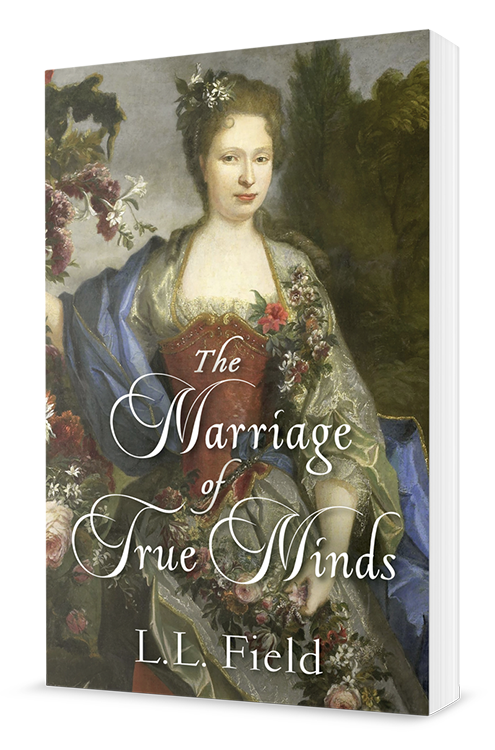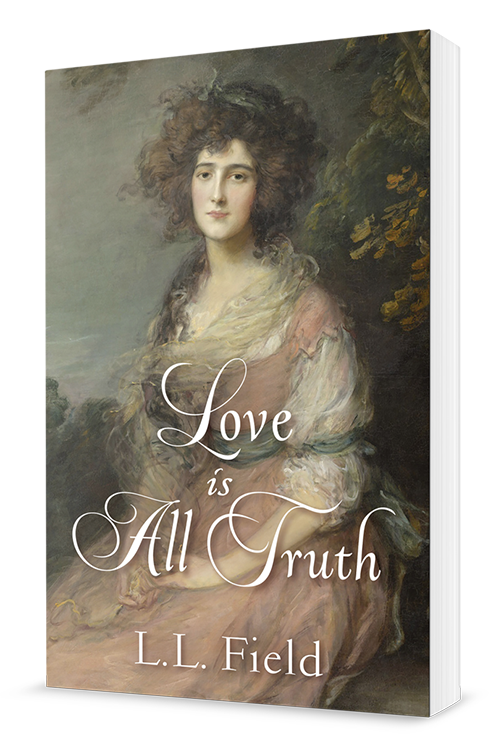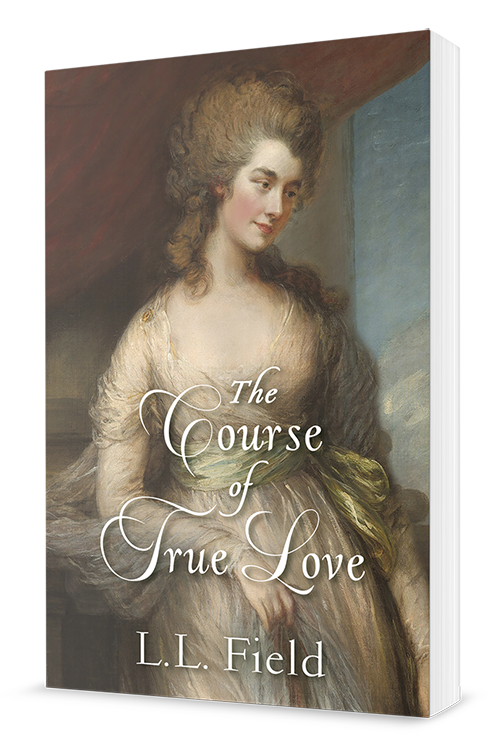About L. L. Field
In researching my family history this summer, I discovered my father’s family hails from England—right where my books take place. Totally coincidental—or is it? I have always been an Anglophile, reading Jane Austen, of course, but also Barbara Pym, Joanna Trollope (and Anthony), Jane Gardam, A. S. Byatt, the Brontes, E. M. Forster, Samuel Pepys, Shakespeare—I could go on and on. I have of late, after writing The Marriage of True Minds, picked up Georgette Heyer and found her books delightful.
About This Series
The Marriage of True Minds is the first novel in the series about the English upper-class during the reign of George III in 18th century England, just before the American Revolution. In the Polite Society of this period, an aristocrat had one duty above all others—produce a male heir to perpetuate the family’s title. Geoffrey, the 3rd Earl of Stoneleigh, and his wife, Anne, are a love match—she being the daughter of a knighted merchant and he being the sole heir to an earldom. To the consternation of the Dowager Lady Stoneleigh, her son has yet to produce a male heir—five daughters! are the only evidence of his happy marriage. The dowager’s own complicated romance with Lord Wortham adds humor to the narrative and intrigue around her dead husband’s past. Add a pair of youthful thwarted lovers to the plot—all played out against the backdrop of the London Season with its whirl of fancy soirées and elaborate balls in authentic historical settings—and you have endless complications that carry over into the next two books.
The Shakespeare Connection
LORD, WHAT FOOLS THESE MORTALS BE
To be (or not to be) a true Anglophile, you have to read Shakespeare—he’s part of the soul of the English people. As the author Robert McCrum notes in his recent book, Shakespearean, On Life and Language in Times of Disruption, Shakespeare’s words are the key to our shared humanity. And, what I found most interesting, thanks to McCrum, is how Shakespeare’s use of the common vernacular—“the mother tongue in the street”—still lives on in our own clichés: it’s Greek to me; vanished into thin air; tongue-tied; knitted brow; fair play; stood on ceremony; cold comfort; too much of a good thing…the list goes on and on.
I was drawn to the famous Sonnet 116: Let me not to the marriage of true minds/Admit impediments…I knew the title of my first book before I began writing it. Love is almost always fraught and bounded by Society’s rules. Couples may be too young, too divided by class, or even too old and burdened by the past—exactly the problems faced by the main characters in The Marriage of True Minds. But as the sonnet proclaims: Love is not love/Which alters when it alteration finds/…O, no…And so the title of the book foretells of love that withstands the pressures against it. And, in all good romances, prevails.



